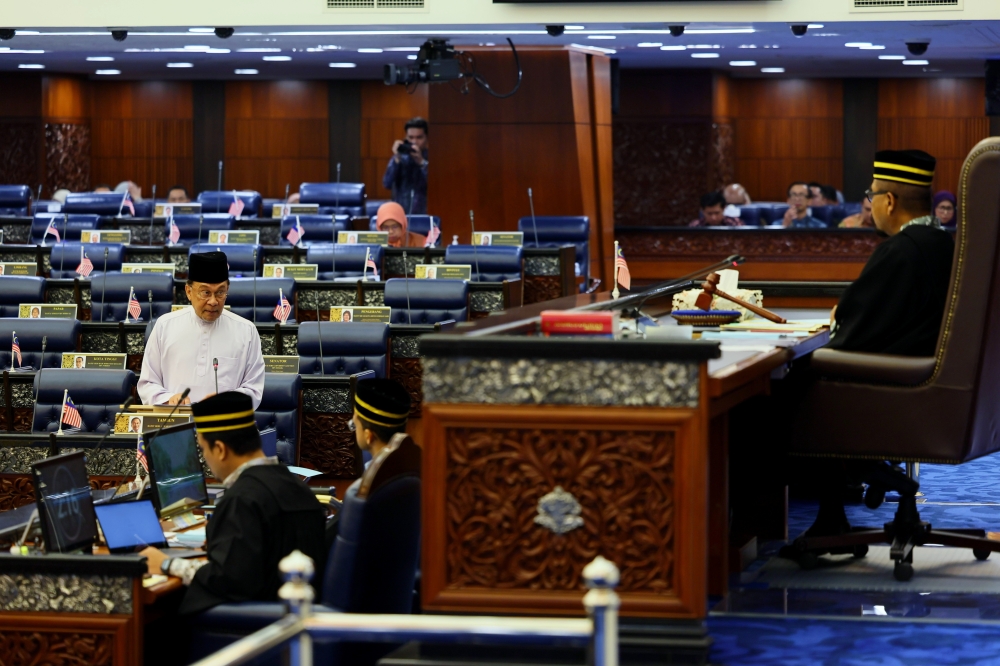KUALA LUMPUR, Aug 28 — The Government Procurement Bill 2025 was passed at its second reading in Parliament today.
Despite the Opposition MPs’ attempts to block the Bill at this stage, 125 MPs voted in favour, 63 MPs voted against, one MP abstained and one MP suspended.
“As there are more Members of Parliament voting in favour, the Bill is now read for its second reading,” Dewan Rakyat Tan Sri Johari Abdul told the Parliament.
The Bill, which was debated at its committee stage yesterday, faced resistance not only from Opposition MPs but also from MPs within the ruling divide.
Pasir Gudang PKR MP Hassan Karim, a senior backbencher among others who were against the Bill, highlighted flaws in the proposed law and said these needed to be addressed.
Hassan, along with Opposition MPs, warned that if passed, the draft law would grant overly broad powers to the finance minister.
Citing several provisions, he said one of it would allow the minister to approve mega contracts without any ceiling; the minister would not be bound by the procurement board’s recommendations; ministers would be allowed to decide if the board reaches a deadlock; and the minister can influence appointments to the board.
Another backbencher Pakatan Harapan Puncak Borneo MP Willie Mongin also raised concerns about further worsening abuse of the government’s procurement system.
The Finance Minister, who is also Prime Minister, Datuk Seri Anwar Ibrahim, tabled the proposed law for its First Reading yesterday.
The Bill aims to strengthen fiscal governance, combat corruption, and close loopholes in public procurement.
Anwar said the Bill complements the Fiscal Responsibility Act (FRA) 2023 and the Financial Procedure Act 1957, elevating procurement rules to binding law.
Key provisions include:
- Checks and balances — decisions, even by the Finance Minister, can be reviewed by an Independent Review Panel and a Procurement Appeals Tribunal.
- Punitive measures — for the first time, violations such as conflicts of interest, interference, document falsification or contract transfers can be punished with fines and prison sentences, applying even to retired civil servants and private contractors.
- Wide coverage — the law applies not only to federal agencies but also to state governments, local authorities, statutory bodies and GLCs that use public funds.
- Transparency — all parties involved must declare interests, reducing opportunities for rent-seeking.






